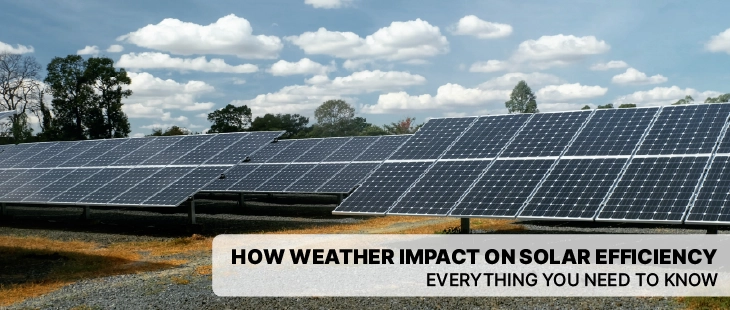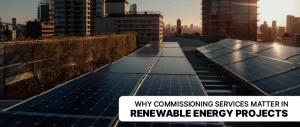As solar energy becomes more widely adopted, questions about real-world performance continue to arise especially regarding how weather affects energy output. The weather impact on solar systems is an important factor that influences how much energy your panels can generate throughout the year.
This blog explores how different weather conditions impact the efficiency of solar panels, helping users make better decisions for long-term use.
Sunny Days – Ideal Performance
On clear, sunny days, solar panels receive maximum sunlight, which translates to peak power generation. The direct rays of the sun provide the highest energy yield, making these conditions ideal for solar energy systems.
That said, extremely hot days can slightly reduce panel efficiency. High temperatures increase electrical resistance within the panel’s components, which can lower performance. This is especially important in hotter regions, where systems need to be designed to account for both high sunlight and high heat. In such places, consultation with solar energy company in Ahmedabad helps ensure the system design suits the climate.
Cloudy Weather – Reduced, Not Stopped
When the sky is overcast, sunlight is diffused through clouds, which reduces the amount of solar radiation reaching the panels. Still, solar panels do work on cloudy days, though they may generate only 10–25% of their usual output.
This condition is a clear example of the weather impact on solar energy systems. Some locations have frequent cloud cover or monsoon seasons and this seasonal variation must be factored into system planning. Even with decreased output, modern panels and inverters can adjust to changing light conditions to make the most of available energy.
Rainfall – Less Output, But Useful Cleaning
Rainy days result in lower energy generation due to limited sunlight. However, the upside is that rain naturally cleans the surface of solar panels, washing away dust, dirt and bird droppings that may have accumulated.
This helps improve energy output when the skies clear. In places with both dry and rainy seasons, cleaning after rain can reduce the need for frequent manual maintenance. These patterns are typically considered when choosing Solar Panel Installation Services in dusty or mixed-weather regions.
Cold and Snowy Conditions – Surprising Efficiency
Cold weather can improve solar panel efficiency. Unlike many devices, solar panels work better in cooler temperatures due to reduced electrical resistance. So, as long as the panels receive sunlight and remain clear of snow, they can still perform well during winter.
Snow buildup can temporarily block sunlight, but tilted installations often allow snow to slide off. In areas with occasional snowfall, the weather impact on solar systems is manageable with proper design and orientation.
Wind – Mixed Effects
Windy conditions do not directly affect how much energy is generated, but wind has a cooling effect, which can slightly improve performance on hot days. However, strong winds require panels to be mounted securely, with support structures capable of handling gusts.
This is especially important in open or coastal areas. Installers in such areas, including those considered the best solar company in Gujarat, account for wind speed and direction when designing systems for long-term durability.
Dust and Pollution – Gradual Decline
Dust storms and hazy conditions can reduce solar panel efficiency by blocking sunlight and settling on the panels. Over time, this buildup leads to decreased output if the panels aren’t cleaned regularly.
For regions prone to dust or pollution, long-term performance can be improved with periodic cleaning or automated systems. These concerns are usually addressed during setup discussions with Solar Panel Installation Services providers.
To Conclude
The weather impact on solar panel performance is real but manageable. While clear skies offer the best output, solar panels still function under clouds, rain, or cold. With the right design and planning, systems can remain efficient across different weather conditions.
Understanding your local environment and working with knowledgeable providers, like Renesys Power System Pvt. Ltd., helps ensure that your system operates efficiently year-round.




